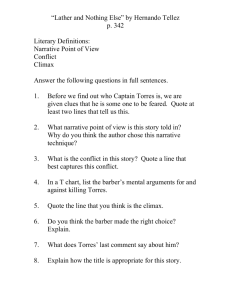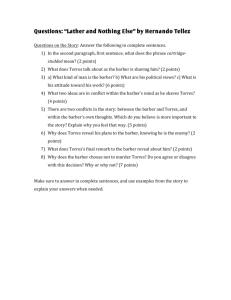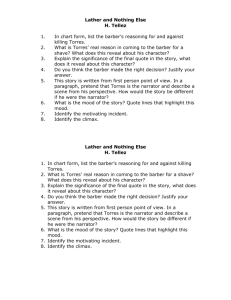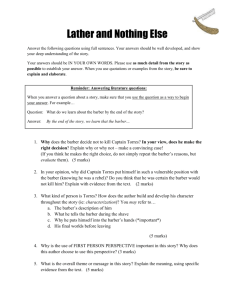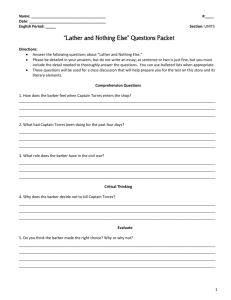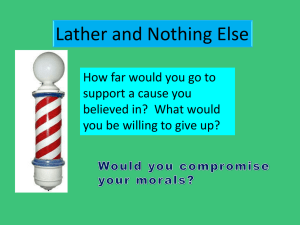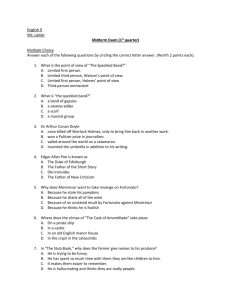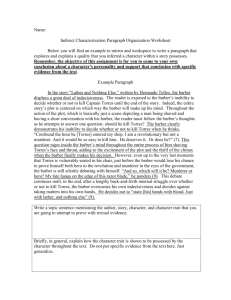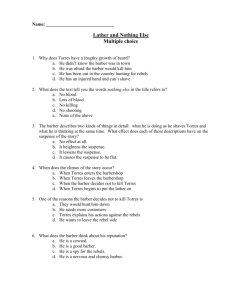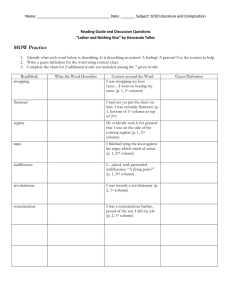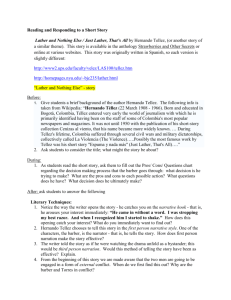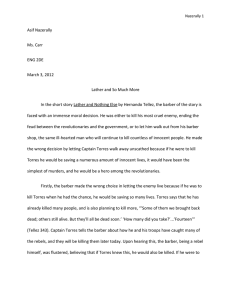lather_poster
advertisement
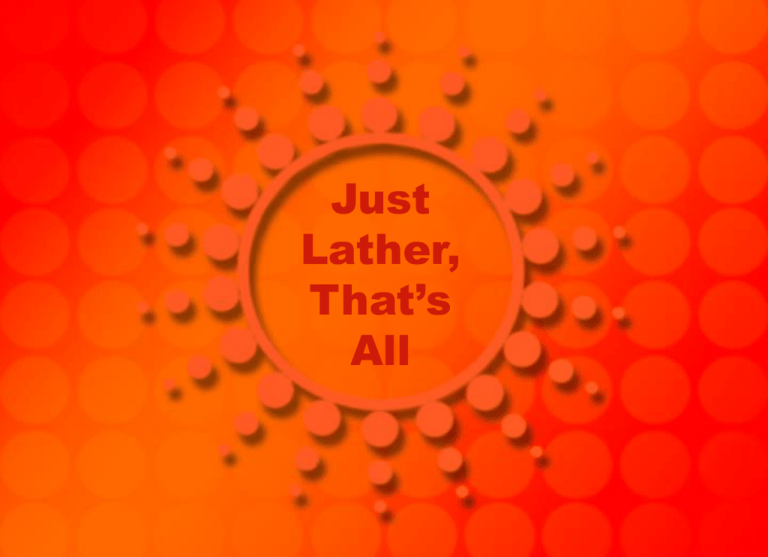
Just Lather, That’s All Before you read: Imagine that you were in a situation in which you had life-or-death power over figures currently in the news or historical figures whom you despise for their morals. • • • • • • How would you use that life-or-death power? What would you do? Why? What would be the consequences of the action you chose? What are alternative courses of action? What would be the consequences of these actions? What is the moral dilemma inherent in their hypothetical situations? Define: • What is a "revolutionary"? • What do you know about current or historical revolutionary movements or governments in South America? • You might be familiar with historical examples such as Cuba or Chile, or more contemporary revolutionary movements such as those in EI Salvador, Mexico, or Colombia. Discussion: 1. The two men in this story are involved in a life-and-death struggle. However, the conflict between the barber and Captain Torres never comes to the surface, even in their conversation. In the shop, there is no physical violence, no use of knives or pistols. What is the conflict? What creates the tension? 2. Why didn't the barber kill Captain Torres? To say that the barber was afraid to commit the murder provides only a partial answer. 3. It is not until the end of the story that we learn that Captain Torres knew that the barber was his enemy. Why did he unbuckle his gunbelt and sit calmly in the chair, discussing the horrible treatment he had planned for the barber's fellow-revolutionaries, when he knew that the barber could cut his throat in a fraction of a second? What terms would you use to label Torres' behaviour? Discussion: continued 4. What are the implications of the title? 5. Why does Téllez mention that Torres' first action was to take off "his bullet-studded belt that his gun holster dangled from"? 6. What is the importance of "I continued sharpening the razor"? 7. What is the antecedent for the pronoun they in the sentence "They told me that you'd kill me"? 8. Why does Téllez use the first-person point of view in the story. What does he achieve by telling the story as if he were the barber? 9. How do you interpret Torres' remark that "killing isn't easy"? 10. What was the dilemma faced by the barber? Create a theatre poster advertising the movie version of “Just Lather, That’s All”. theatre poster Your poster must include the following: (25 marks) • an important symbol as a visual image – you should emphasize the relationship between the two men • at least three important lines from the story • the present-day stars who are appearing in your movie - you must cast the roles of: • the barber • Captain Torres • others? revolutionaries? Torres’ men? deconstruction You will then complete a second page which explains your choices. (25 marks) • Why did you chose your visual image? • What kind of message or mood were you trying to project? • Explain why you chose the quote that you did. • How is it important to the story/movie? • Why did you cast EACH of the characters as you did? • Why did you think EACH actor fits the chosen role? • Why did you use the font, size, and colours that you did in your poster?
